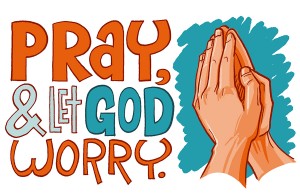Martin Luther and the Bible
We all want to change the world, but in the 1500’s there were many men and women who helped to change the world, but none as much as the German monk-turned-professor Martin Luther. He helped reform Christian ways and tradition by speaking against the many errors of his day and comparing them to what the Bible actually teaches.
Justification by Faith
Let’s start with the most important New Testament doctrine that Luther help correct. So very important is the doctrine of justification by faith. Luther taught that the Scriptures, the Bible, declare a sinner is justified by faith in Christ alone (Ephesians 2:8-9) and not by works of penance or anything we could do. It is by grace alone that a believer is saved, plus nothing. That gracious salvation would lead to a changed life of good deeds, not the other way around. So its grace alone plus nothing that I could add. Good deeds come out of God’s love and grace bestowed on us.
Martin Luther and Prayer
At one point Martin Luther wrote a letter to his wife expressing his concern over some issues. Remember, Luther was a religious and somewhat a political lighting rod in his day. That stirred up some controversy. In the midst of this trouble Luther wrote to his wife and in the latter a phrase was mentioned “Pray and Let God Worry”. In other words we pray and God has to take it from here on. So Pray and Let God Worry. Enjoy a short devotional video on “Pray, Let God Worry”
Here is a portion of one of Martine Luther’s prayers: “Heavenly Father, dear God, I am not worthy that I should lift up mine eyes or my hands to thee in prayer, but since thou hast commanded us to pray and has taught us how through Jesus Christ our Lord, I will say, ‘Give us this day our daily bread”. Luther was a man of prayer. He loved God, loved the Bible and loved prayer.
Money Does not Work, Only God’s Grace
Another problem that Luther wanted to fix was the medieval view of indulgences… a document Christians could buy which was supposed to pardon a person from the sins they had committed. Money can be a problem if our heart is not right toward it. Luther criticized this teaching because he believed it replaced the Biblical doctrine of repentance (1 John 1:9-10). The Bible talks of “confession” not trying to pay God.
The Authority of the Bible
Another tradition Luther objected to was denying the authority of the Bible, by elevating religious traditions above the Old and New Testaments. Luther saw the Bible as the top faith document and higher than anyone else’s thought or feelings. Luther faithfully preached that the Bible, not the church, is the ultimate authority over matters of faith and life (Acts 5:29). Because the Bible was only allowed in Latin, an academic language, Luther chose to translate the Word of God into the German tongue so that any literate person in his land could read the Bible and learn its glorious message.
Every Believer is a Priest of the Most Holy God
Luther and his fellow Reformers also helped restore congregational singing, lay leadership, the sanctity of common work for the glory of God, and a renewed focus on the centrality of the gospel in every area of a Christian’s life. While Luther had real flaws, he played an undeniably important role in the development of theology and the church in the 16th century. Yes, like the rest of us, Luther was not perfect, but God used him just as he was with the help of God’s grace and love.
Conclusion
Martin Luther loved God, loved the Bible and loved prayer. God used such a poor sinner, and so God can use us, also poor sinners, but its all by His love and grace.






